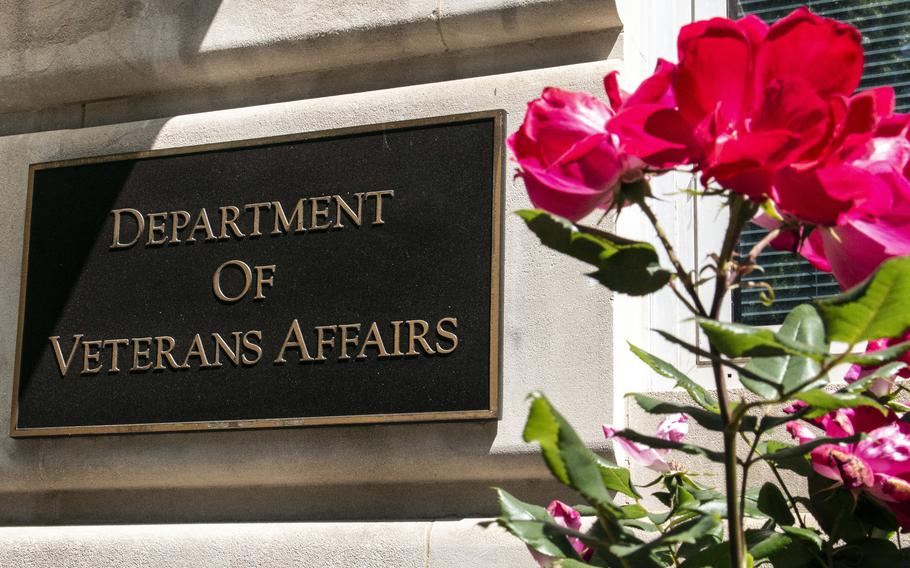
The Department of Veterans Affairs headquarters in Washington, D.C., is shown in this undated photo. (Stars and Stripes)
WASHINGTON — House lawmakers on Monday urged leaders at the Department of Veterans Affairs to inform 40,000 low-income and elderly veterans immediately about accounting errors at the VA that caused hundreds of millions of dollars in overpayments to pensioners.
The VA instituted a moratorium in November on debt collection related to the overpayments as it works to let all impacted veterans know about their debts, amounts owed and steps required for repayment.
Rep. Matt Rosendale, R-Mont., chairman of the House Committee on Veterans’ Affairs subpanel on technology modernization, criticized VA leaders during a 90-minute hearing about the lack of information conveyed to lawmakers on how accounting mistakes occurred and plans to redress them.
The purpose of the hearing was to examine glitches at VA.gov, the consumer portal that veterans use to access services and information.
Lawmakers sought to learn more about pension overpayments, which the VA first reported to the subcommittee last month.
“There are still many outstanding questions. When did the VA leaders first realize there were overpayments? When are the debts going to be erased?” asked Rosendale, who noted he has introduced legislation — the VA Watching Over Electronics Act — to improve automated monitoring of the VA benefits system.
Kurt DelBene, assistant VA secretary for information and technology, and other VA officials who testified said the agency is still going through thousands of records to identify and assess all the overpayments.
“The moment we know we strive to communicate that information to the veteran as quickly as possible,” DelBene said.
The process involves comparing income self-reported by veterans with data from the Social Security Administration.
The VA does not yet have a figure on the total and was unable to provide lawmakers with the range of individual debts.
The VA began to notify pensioners in 2022 after initially discovering that overpayments were made to about 10,000 veterans and their survivors. Updated accounting tools enabled them to pick up errors dating back to 2011.
Subsequently, the VA has identified about 30,000 additional cases of overpayments.
Mistakes occurred when the income that veterans self-reported was not validated with comparison data from the Social Security Administration, according to officials at the hearing.
The VA opted last month to delay debt repayments until it had developed and implemented a robust plan for notification and managing repayments.
“This is a direct liability that the veterans have to the VA,” said Rep. Keith Self, R-Texas.
Self asked whether the VA has plans to forgive the debts entirely.
“I’m not aware of any policies related to expungement,” said Paul Shute, VA deputy undersecretary for automated benefits delivery.
Self urged VA officials to focus efforts on informing impacted veterans about their debts, the moratorium and options for repayment.
“Many veterans don’t know about it or that you can delay them. That’s something we probably ought to make clear to our veterans,” he said.